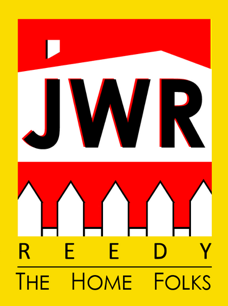BUYING A SHORT-SALE PROPERTY
Purchasing a home listed as a short-sale can be an excellent value…for some. In many ways the beginning of the short-sale transaction is the same as a traditional purchase. A sales contract is submitted to the seller, the buyer and seller then negotiate the price and terms of the sale. Once there is agreement the buyer submits their earnest money. Now we begin to see a few differences. In a short-sale:
1) The property is typically sold “as-is” meaning a home inspection is still allowed however there will be no funds for any repairs on the house. After the home inspection the buyer’s choice is to accept the home “as-is” or walk-away from the deal. If the buyer chooses to walk away, as long as this is done within the attorney review/inspection period the buyer’s earnest money will be refunded.
2) The tax prorations are 100%. In a traditional sale tax prorations are typically 105% or 110%. When you purchase a property the taxes follow that property not the previous owner. At the closing table you receive all taxes due up to the day of closing. In a traditional sale they increase the amount slightly to accommodate a tax increase. In a short-sale only the current tax amount is paid.
3) The buyer pays for the survey. In a traditional purchase this expense goes to the seller. In a short-sale it is most often a buyer’s expense.
At this time the buyer needs to move forward with their mortgage application.
The step for the buyer is waiting. The contract has been submitted to the lender (or lenders) that hold the mortgage on the property. In a short-sale, the lender is taking a loss on the property, so they must approve the sale. This approval process can take as little as 30 days or as long as one year (which is unusual). The typical time frame is 2-6 months.
There are three possible outcomes for the buyer on a short-sale.
1) The buyer’s offer is accepted. This response comes in the form of an approval letter from the holder of the mortgage. You typically must close within 30 days of the date of the letter.
2) The lender does not approve the purchase price. They may state a “lowest price” that they will accept. The buyer can either accept that price or cancel the deal.
3) The lender does not respond and the property eventually is sold in a sheriff’s sale.
A short-sale is probably not a good purchase for you if:
You need to sell your home to buy a home. The lender who must approve the sale will not consider a contract with a “home-sale” contingency. In other words, if you need the funds from the sale of your home to purchase a new home, your contract will contain a “home-sale” contingency – so a short-sale is probably not for you.
You have a lease on a home or an apartment that requires you be out on (or must stay until) a specific date. Unless you can negotiate a release you from your lease, or rental on a month-to-month basis, a short sale may not be for you.
If you have any short-sale questions feel free to contact me.
